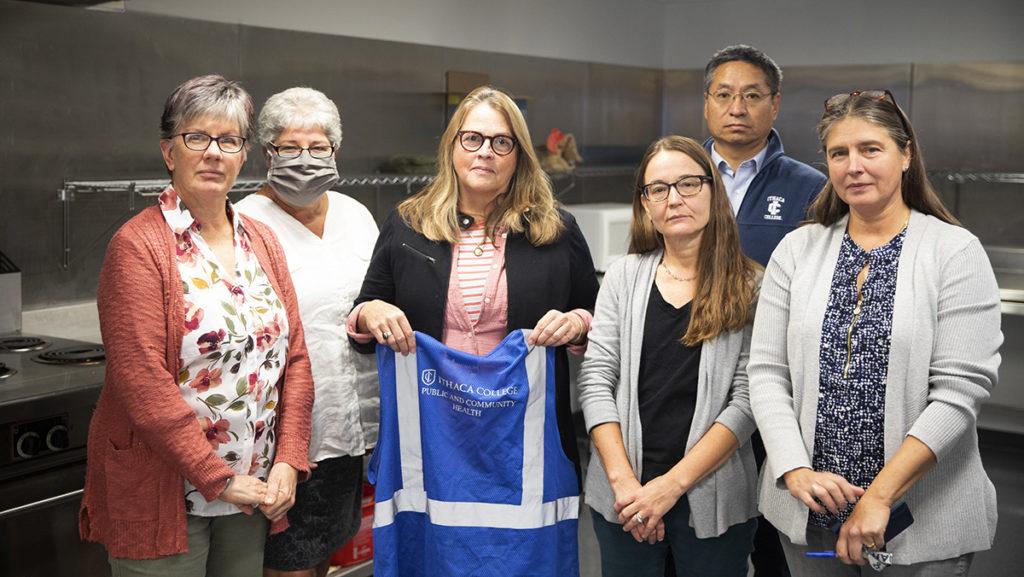Dear Ithaca College Community,
During the final week of classes concluding the Spring 2016 semester, The Ithacan reported two detrimental blows to the college both as a result of actions taken in upper administration: The elimination of more than half of study abroad programs, and the stepping down of two beloved faculty directors in both the Honors Program and the Office of Civic Engagement. As student representatives of the college, we write this letter to express our extreme disappointment in the upper administration’s ability to provide students with the highest quality education possible, echoing faculty concerns expressed in their May 19th letter to the Board of Trustees.
It is incredibly disheartening that despite consistent voicing of “No Confidence” across constituencies, Tom Rochon’s leadership continues to be destructive towards the education of students, as well as the treatment of faculty and staff.
The elimination of more than 80% of study abroad programs for the 2017-18 academic year directly contradicts the college’s commitment to experiential learning, not to mention our own vision statement. By eliminating life-changing opportunities that are capable of “fostering intellect, creativity and character”, the decision-makers of the college negatively redefine what “student-centered” learning is. Choosing to dispose of these programs based on their fiscal costs instead of their capacity to provide worthwhile experiences to students, the upper administration—predictably and disconcertingly, follows the national trend of universities and colleges corporatizing higher education in order to make a profit, instead of investing time and effort into students themselves. We extol this action as not only anti-intellectual, but also nonsensical.
Unfortunately, the resignation of both Thomas Pfaff and Patricia Spencer from their positions in the Honors Program and the Office of Civic Engagement—respectively, solidify the claims stating that there is a lack of administrative support at Ithaca College. The recent undermining of both aforementioned faculty, cuts made to study abroad, removal of the Sport Studies Program, disbandment of the China Center, and lack of support given to part-time and full-time contingent faculty, are all representative of the repetitive and predictable pattern of upper administrations style of devaluing, disregarding and disrespecting faculty efforts. Beyond frustration and distrust—students, faculty, and staff are forced to bear witness to the fallout of reckless long-term decisions made behind closed doors. Decisions that rarely affect the people who make them, but drastically affect those who are strategically left out of conversations. These actions do more than estrange us from the campus that we could be: they tear at the very fabric that enables the possibility of being proud of IC.
We denounce the current state of collegiality and collaboration — the lack thereof — between constituencies. Although these sentiments have already been reiterated by the Shared Governance Task Force in February, we believe it is necessary to repeat once again that “the campus community desperately needs to transition to a mindset of participatory democracy, an institution that requires the full participation of every constituency”. However, it must be said that despite the opportunity for substantial change in the Spring 2016 semester, it is not the case that different constituencies are not participating in expressing their concerns, but rather concerns are still being disregarded and undermined by the constituency with the most centralized power — the administration.
It is for this reason that we echo the concerns of faculty and staff and expect the Board of Trustees to take the following actions in attempt to rectify the strategically timed damage done to our campus during the last few weeks of the semester, as well as the damage done as a whole.
- The immediate removal of Tom Rochon as president, due to continued discontent among students, staff, and faculty.
- Acknowledge the dissatisfaction around administrative changes made to faculty-run programs
- Review Provost Benjamin Rifkin’s ability to function as leader of academic affairs, to determine whether or not he should remain as provost.
- Open the presidential search to the entire campus community to allow for a more inclusive selection process
- Affirm that the position of Faculty Director of Service-Learning, is a position where one is able to teach as well as administer the program
- Agree that no decisions on planning and development of future programs affecting the quality of education, will be made without the full and equal partnership of faculty and students
- Support faculty, staff, and student assessment of the Board of Trustees composition, constitution, and functioning as a means to strengthen governance, self-reflection, and community
As we enter our term as the newly elected executive board of student government, we are optimistic about the capability of the college to work together in creating meaningful change. We are however simultaneously realistic about the crippling realities that exist within the administration. Given the departure of key administrators and staff, including the recent departure of Gerald Hector, we are experiencing an effect similar to a revolving door. Key members of our community are leaving the institution, resulting in the reduction in long term commitment that different constituencies have on campus. It is essential that in moving forward, we, through models of shared governance, hold equitable responsibility and accountability on matters that affect the campus community. Working towards this goal as a community will help to increase overall investment in each of the constituencies in building an equitable and sustainable community.
This past year for the college as a whole has been difficult. However, we firmly believe that a call for self-examination is the first place to start working towards a better, more sustainable present and future. We must engage in high impact practices, place value on inclusivity and shared governance, be flexible to change, and most importantly take care of the institution we call home.
Sincerely,
Marieme Foote, SGA President
Luis Torres, VP of Campus Affairs
Michele Hau, VP of Academic Affairs
Ezeka Allen, VP of Business and Finance
Dani Weinstein, VP of Communications
Carlie McClinsey, Senate Chair











